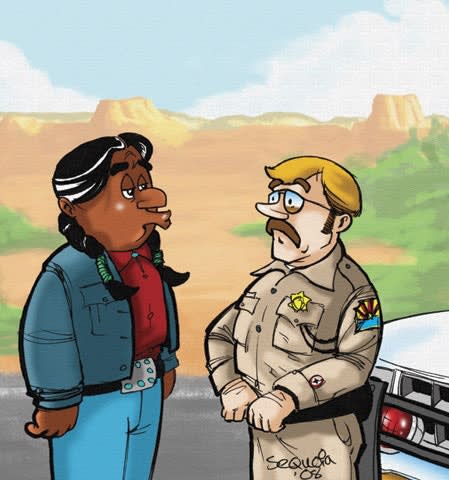Throughout our lives we give each other information on how to do things or get somewhere. We like to call these instructions "directions" to give them more credibility than if we called them "OK, try this."
No matter how many folks give input, often directions make no sense at all and only through the sheer fact we have actually observed another doing or using the directed item can we possibly succeed.
I will quote directly from the directions on my shampoo: "Apply to wet hair, lather, rinse, repeat." I have no doubt that committees of experts pore over every inch of a product's packaging to make it more sellable, but who decides that we need directions for how to wash our hair?
I notice all my electronics come with a vast choice of languages, often so many I can't find the English pages. Then, upon trying to comprehend the directions and finding myself with wires that turn out to have no color code going here and there to no avail, I begin to suspect the only true directions are actually in German.
I suspect part of the problem with directions is that different cultures give directions different ways and writing is a poor way of giving them for the majority of life's situations.
The Navajo consider pointing rude, so they use their lips to give physical locations. Here's how it works: When giving a ride to a stranded motorist one day I discovered that "over there" and a long pursing of the lips toward the north actually meant, "I live in Utah and I would appreciate a ride." Several hours later with the help of a giggling Navajo DPS dispatcher, I made my way back to US Rt.160 to Arizona.
But soon it wasn't too long before I was pointing with my lips and easily understanding what was meant by "over there" and knew exactly what the follow-up questions should be.
However, even though I know how to do these things, I can't write a description or set of directions on how to tell directions in the Navajo way without showing you and you experiencing it. Which is one of the problems with so many people, institutions, and companies that give us directions.
These folks already are at the place that you are trying to get to in terms of physical location or in terms of how to use their product. And like so many things in life it is hard for them to put themselves in your position.
Most things in life are best shown and practiced if they require doing. This is especially true of those things that are of great liability to both us and our agencies. Your agency would never have you read a manual, then give you a firearms written test, then send you on the road. But often agencies do similar things by creating a policy or order that directs us to do this or that in such and such a circumstance without realizing that they are sending us to Utah without a dispatcher to help us get back.
One of the greatest axioms about policies (directions) I ever heard was from Chief Jeff Chudwin, my "rabbi" for all things training and technical, and it was simply this: "It isn't a policy until you've trained for it."
Too often in police work we read a policy or procedure and we secretly think the real directions are in the German version, and we don't speak German. If something is important for liability or safety reasons we absolutely have to do it, not just read it.
I know this is common sense for all you Gen Y'ers out there that simply throw directions away and start doing, but in this case our butts are on the line so I ask all of you out there who are writing policies and procedures and all the directions in our lives to please remember there is more than "lather, rinse, repeat!"
Dave Smith is the creator of "Buck Savage" and a retired law enforcement officer from Arizona. Currently, he is the lead instructor for Calibre Press' "Street Survival" seminar.













